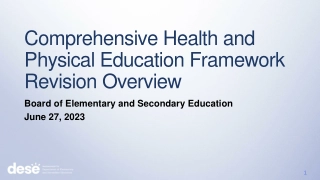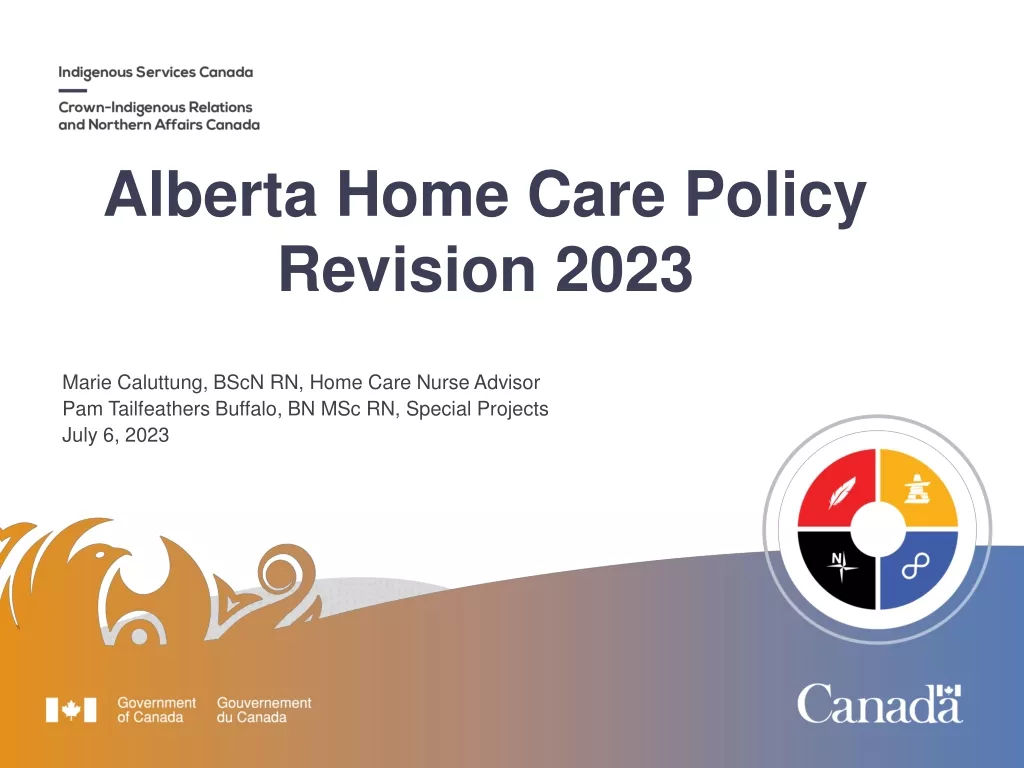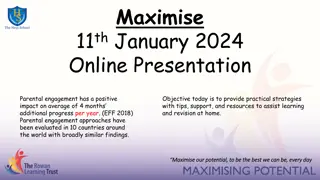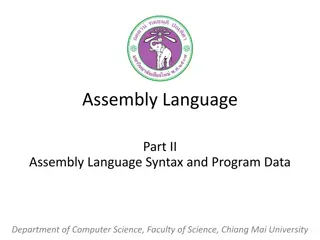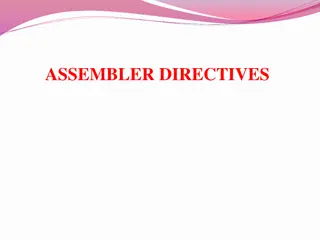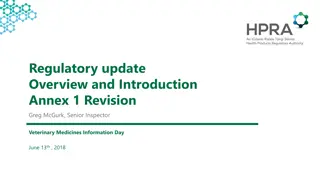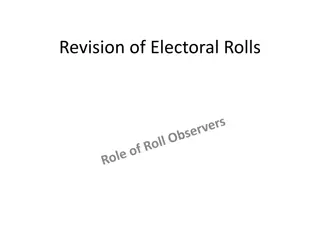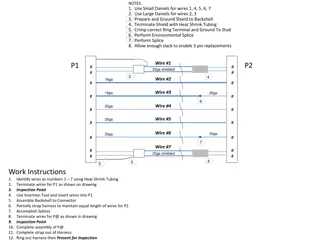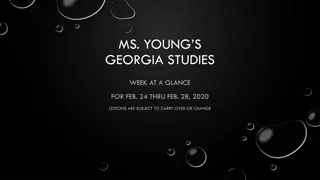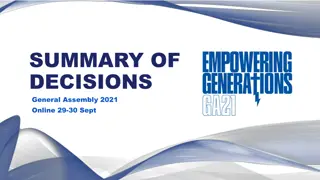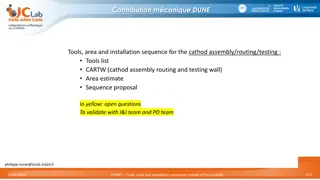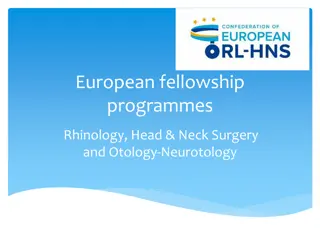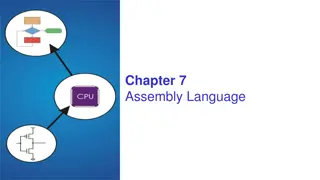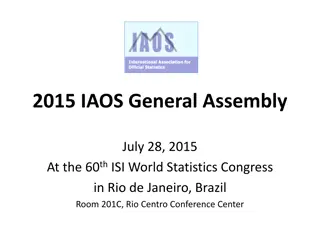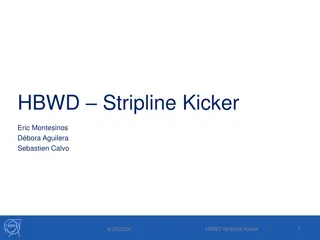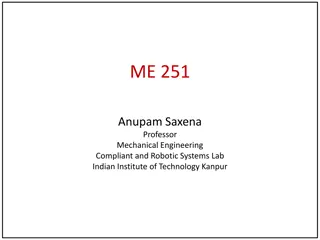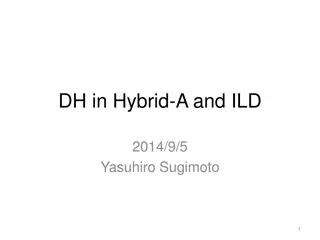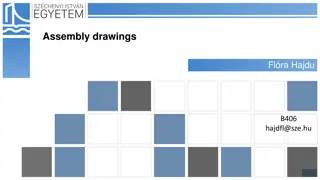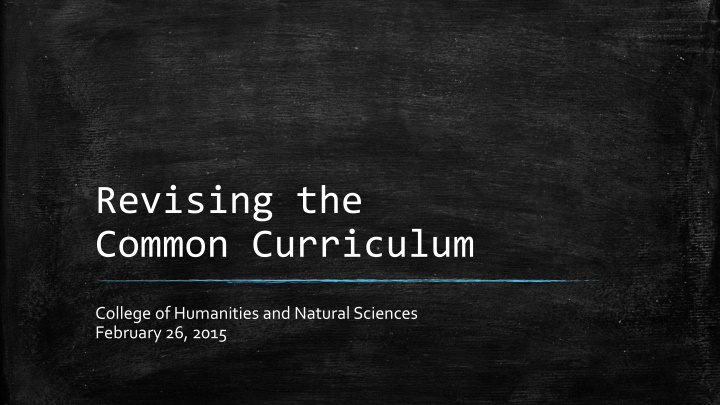
Revised Common Curriculum in Humanities and Natural Sciences
Explore the revisions made to the Common Curriculum at the College of Humanities and Natural Sciences, focusing on core competencies like Critical Thinking and Effective Communication. The Fall 2013 curriculum and its revised version are compared, highlighting changes in courses and credit distribution. Additionally, learn about elective-challenged majors and their impact on General Electives in degree programs across various disciplines.
Uploaded on | 2 Views
Download Presentation

Please find below an Image/Link to download the presentation.
The content on the website is provided AS IS for your information and personal use only. It may not be sold, licensed, or shared on other websites without obtaining consent from the author. If you encounter any issues during the download, it is possible that the publisher has removed the file from their server.
You are allowed to download the files provided on this website for personal or commercial use, subject to the condition that they are used lawfully. All files are the property of their respective owners.
The content on the website is provided AS IS for your information and personal use only. It may not be sold, licensed, or shared on other websites without obtaining consent from the author.
E N D
Presentation Transcript
Revising the Common Curriculum College of Humanities and Natural Sciences February 26, 2015
Common Curriculum Core Competencies The goal of the Common Curriculum is to foster students competency in five key areas: Critical Thinking Effective Communication Quantitative Reasoning Information Literacy Ethical Reasoning
The Common Curriculum Fall 2013 Introductory (21 cr) Advanced (24-25 cr) Language (up to 12 cr) RACs (0 cr) First-YearSeminar Writing about Literature A100 Catholic Tradition ENGLT122 Critical Reading & Writing HIST II A101 Diversity MATHT122 Math Models or MATH A115 Intro to Finite Math or MATH A257 Calculus I PHILII Foundations of Knowledge A200 Premodern HIST T122 Global History I or HIST T124 Global History II RELS II A201 PHIL T122 Phil of theHuman Person Natural Sciencein Context RELS T122 Religions of the World or RELS T124 Christianity and Society Engaging in Science: Lab (1 cr) SCIE T129 InvestigatingNature SocialScience CreativeArts and Cultures (2-3 cr) FoundationalEthics TOTAL:57-58CREDITS
The Common Curriculum revised Fall 2013 Introductory (21 cr) Advanced (24-25 cr) Language (up to 12 6 cr) RACs (0 cr) First-YearSeminar Writing about Literature A100 Placement Catholic Tradition ENGLT122 Critical Reading & Writing HIST II A101Placement +1 Diversity MATHT122 Math Models or MATH A115 Intro to Finite Math or MATH A257 Calculus I PHILII Foundations of Knowledge A200 Premodern HIST T122 Global History I or HIST T124 Global History II RELS II A201 PHIL T122 Phil of theHuman Person Natural Sciencein Context RELS T122 Religions of the World or RELS T124 Christianity and Society Engaging in Science: Lab (1 cr) SCIE T129 InvestigatingNature SocialScience CreativeArts and Cultures (23cr) FoundationalEthics TOTAL: 57-58 51CREDITS
Elective-challenged majors Eligibility 12 or fewer General Electives in degree program additional content in the major and/or reduction in general education (i.e., Common Curriculum) coursework justified by accreditation requirements and/or best practices in the discipline % of students enrolled in elective-challenged majors First-Year Sophomore Humanities and Natural Sciences 42.4% 40.5% Social Sciences 0% 0% Business 100% 100% Musicand Fine Arts 85.8% 76.5% Total 55.9% 52.8% Figures based on data provided by the Office of Institutional Research and Effectiveness. See Enrollment by Major with Registered Hours, September 30, 2014, http://academicaffairs.loyno.edu/sites/academicaffairs.loyno.edu/files/pf5%20enrollment-by-major- wth-reg-hrs-final-9%2030-1.pdf.
Current challenges The revision process led to a larger, more complex Common Curriculum. Lack of commonality creates difficulties in planning courses. Lack of commonality creates difficulties in conducting meaningful assessment. SACS-COC requires that the general education component of an undergraduate degree program be based on a coherent rationale (2.7.3). Lack of commonality makes CommonCurriculum a misnomer. RAC designations have been applied inconsistently to courses; these requirements place additional burdens on already strained degree programs in business and the natural sciences, where there are fewer options for satisfying RACs within the major. The complexity of the Common Curriculum poses challenges to advising and results in students taking additional coursework unnecessarily; DPCLs are inconsistent, illogical, and illegible in some cases.
Current challenges Distinction between Introductory and Advanced Common Curriculum courses is sometimes arbitrary. FALL 2013 JR 16 37 34 9 55 34 9 44 238 FALL 2014 JR 7 29 40 10 29 25 10 67 217 SPRING 2014 JR 16 18 31 13 40 21 4 39 182 SPRING 2015 JR 13 19 28 12 46 28 7 43 196 COURSE Engl-T122 Hist-T122 Hist-T124 Math-T122 Phil-T122 Rels-T122 Relt-T124 Scie-T129 FR 178 252 55 54 194 145 93 89 1060 SO 83 118 115 24 244 150 17 122 873 SR 4 8 20 2 15 17 1 16 83 TOTAL 281 415 224 89 508 346 120 271 2254 FR 203 92 33 48 206 134 20 93 829 SO 39 28 81 23 91 54 9 77 402 SR 7 8 15 12 11 9 3 21 86 TOTAL 265 146 160 96 348 218 36 230 1499 COURSE Engl-T122 Hist-T122 Hist-T124 Math-T122 Phil-T122 Rels-T122 Rels-T124 Scie-T129 TOTAL FR 205 225 48 40 186 146 7 50 907 SO 48 73 30 27 87 70 38 115 488 SR 7 11 17 5 8 7 9 28 92 TOTAL 267 338 135 82 310 248 64 260 1704 FR 171 106 26 57 218 145 50 133 906 SO 34 37 19 13 72 41 9 43 268 SR 9 33 23 12 16 4 5 31 133 TOTAL 227 195 96 94 352 218 71 250 1503
Common elements across all degree programs* First-Year Seminar Investigating Nature Critical Reading and Writing Math Models Global History Writing about Literature Foundational Ethics Catholic Tradition RAC Philosophy of the Human Person Religious Studies (World Religions or Christianity) Diversity RAC Premodern RAC TOTAL 27 credits (0 cr for RACs) * Not included: MUTY, MUED, and Evening Division
College re-structuring Beginning in Fall 2016 all degree programs that currently have a 51-credit Common Curriculum will be housed in the reconstituted College of Arts and Sciences; all College of Business degree programs will continue to require 39 credits of Common Curriculum coursework; all College of Music and Fine Arts degree programs will require 39 credits of Common Curriculum coursework following an anticipated revision of the remaining theater and visual art programs.
Recommendation #1: Establish a standard 39-credit core curriculum for all* undergraduate degree programs for Fall 2016. Foundations Courses 9 hours Foundations Courses must be completed in the first year. First Year-Seminar ENGL T122 Critical Reading and Writing MATH T122 Math Models or MATH A115 Intro to Finite Math or MATH A257 Calculus I Knowledge Courses include disciplinary and inter-/multidisciplinary coursework. Knowledge Courses 21 hours Values Courses have PHIL T122 or RELS T122/T124 as a prerequisite. HIST T122 Global History I or HIST T124 Global History II PHIL T122 Philosophy of the Human Person RELS T122 Religions of the World or RELS T124 Christianity and Society Natural Science Writing about Literature Creative Arts and Cultures Social Science Values Courses 9 hours Foundational Ethics Catholic Tradition Diversity *Not included: MUTY, MUED, Evening Division
Recommendation #2: Develop additional college-, division-, or program-level requirements as appropriate. Common Curriculum 39 cr Bachelor of Arts Core 21 cr HIST Major 34 cr General Electives 26 cr First-Year Seminar PHIL II HIST T124 General Elective ENGL T122 RELS II HIST A200 General Elective MATH T122 SCIE II HIST A201 General Elective HIST T122 Foreign Language A100 HIST A202 (1 cr) General Elective PHIL T122 Foreign Language A101 U.S. History Elective General Elective RELS T122/T124 Foreign Language A200 European History Elective General Elective SCIE T129 Foreign Language A201 Non-US/Euro History Elective General Elective WAL Non-US/Euro History Elective General Elective CAC History Elective General Elective (2 cr) SS History Elective Ethics History Elective Catholic Tradition HIST A400 Diversity
Recommendation #3: Rename the Common Curriculum the Loyola Core. Jos de P ez, Sacred Heart of Jesus with Saint Ignatius of Loyola and Saint Aloysius Gonzaga (1770)

